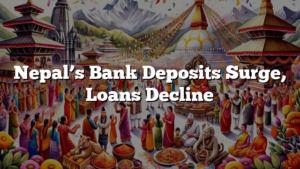
As Nepal stands at a critical juncture to graduate from the least developed countries (LDCs) category by 2026, the investment from development finance institutions (DFIs) has become crucial for the nation’s economic growth, according to experts and participants at a function held on Tuesday.
DFIs are specialized foreign government-backed institutions that invest in commercially viable private-sector projects in low- and middle-income countries where projects face financing gaps and are underserved by private banks.
Between 2014 and 2023, DFI investments in Nepal reached around $1.09 billion, with the energy sector absorbing the majority of these investments.
Promoting Private Investment in Nepal
On Tuesday, Invest for Impact Nepal, a platform to support foreign direct investment into Nepal, powered by British International Investment (BII), the Dutch Entrepreneurial Development Bank (FMO), and the Swiss Agency for Development and Cooperation Nepal (SDC), organized the second edition of the DFI mission to promote private investment in the country.
The three-day event witnessed the participation of as many as 30 delegates from 14 institutions, reflecting the growing interest in Nepal’s investment landscape.
Addressing the inaugural session, Danielle Meuwly, the ambassador of Switzerland to Nepal, highlighted the milestones achieved during the 60 years of partnership between Nepal and Switzerland, with the second DFI mission being one of them. She emphasized that the recommendations made during the first DFI mission in 2023 have been acknowledged and steps have been taken by the government to address issues such as investment locking, payment before disbursement, and interest rate decomposition.
Facilitating DFI Investment
Finance Secretary Madhu Kumar Marasini stressed the importance of transforming the system and bringing more investment, especially from the private sector and DFIs, to generate employment. He acknowledged the vital role of the private sector, which contributes 80 percent to the country’s GDP and generates over 86 percent of employment.
To create a conducive environment for investment, the government has decided to amend nine laws related to investment through an ordinance, aligning with Nepal’s plans for a third investment summit next week.
Growing DFI Investment Commitments
Rabi Rayamajhi, the country representative of the BII Nepal, highlighted the growing trend of DFI investment commitments in Nepal, with a commitment of $300.75 million in 2023 alone. He noted that about 59 percent of DFI commitments have been directed towards financial services, 28 percent in energy, 10 percent in funds, and the rest in other sectors.
Rayamajhi emphasized the quality of DFI investments, with a conversion rate of commitments in Nepal being almost 100 percent, compared to the general investment conversion rate of 30-40 percent.
The top five investors in Nepal by commitment in the last 15 years are the International Finance Corporation (IFC), the Development Finance Corporation (DFC), BII, the Dutch Entrepreneurial Development Bank FMO, and the Asian Development Bank.
Overcoming Investment Hurdles
British Ambassador to Nepal, Rob Fenn, acknowledged the deep-rooted structural issues, legal and regulatory ambiguities, and political uncertainty in Nepal that have been preventing the flow of large-scale investments into the country. He emphasized the need for policy changes to remove these hurdles and unlock access to finance for strategic sectors.
Fenn highlighted the attractive investment opportunities across several sectors in Nepal and stressed the importance of creating a pipeline of investment deals for DFIs. Development partners, he added, can help bridge the massive gap between supply and demand for investment in the country.
As Nepal strives to graduate from the LDC status by 2026, the support and investment from DFIs are expected to play a crucial role in driving economic growth, fostering private sector development, and facilitating sustainable development in the country.
Related:



